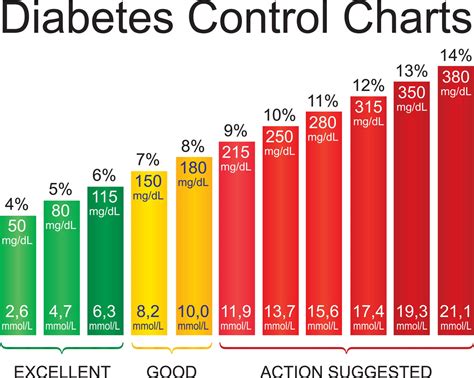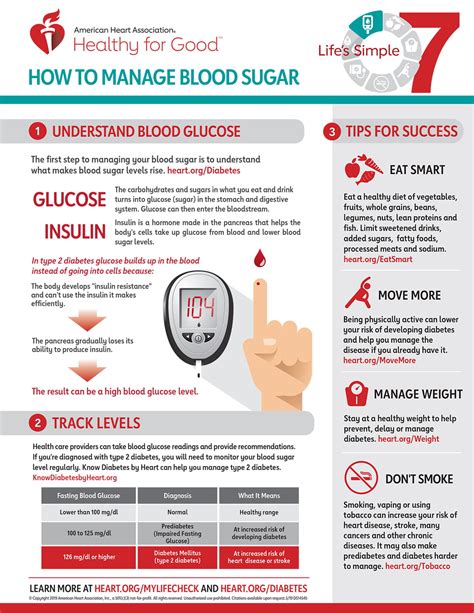Intro
Discover ideal blood sugar levels and maintain a healthy range. Learn normal blood glucose levels, target ranges, and how to manage diabetes with optimal blood sugar control and monitoring for better health outcomes.
Maintaining ideal blood sugar levels is crucial for overall health and well-being. Blood sugar, also known as glucose, is the primary source of energy for the body's cells. When blood sugar levels are within a healthy range, the body functions optimally, and the risk of chronic diseases like diabetes, heart disease, and stroke is minimized. However, when blood sugar levels are consistently high or low, it can lead to a range of complications, from mild symptoms like fatigue and blurred vision to severe conditions like organ damage and even death.
The importance of maintaining ideal blood sugar levels cannot be overstated. Research has shown that even slightly elevated blood sugar levels can increase the risk of chronic diseases, while significantly high or low levels can lead to life-threatening conditions. Furthermore, maintaining healthy blood sugar levels is not just important for individuals with diabetes; it is also crucial for those without the condition, as it can help prevent the development of insulin resistance and other metabolic disorders. In this article, we will delve into the world of blood sugar levels, exploring what constitutes ideal levels, how to maintain them, and the consequences of not doing so.
For individuals with diabetes, maintaining ideal blood sugar levels is a daily challenge. With the help of medication, lifestyle changes, and regular monitoring, many people with diabetes are able to manage their condition effectively. However, for those without diabetes, maintaining healthy blood sugar levels is often overlooked, despite its importance. By understanding the factors that influence blood sugar levels and taking proactive steps to maintain them, individuals can reduce their risk of chronic diseases and promote overall health and well-being. In the following sections, we will explore the intricacies of blood sugar levels, including the benefits of maintaining ideal levels, the working mechanisms of glucose regulation, and practical steps for achieving and maintaining healthy blood sugar levels.
Ideal Blood Sugar Levels

Factors Influencing Blood Sugar Levels
Several factors can influence blood sugar levels, including: * Diet: Consuming high-carbohydrate or high-sugar foods can cause blood sugar levels to rise. * Physical activity: Regular exercise can help lower blood sugar levels and improve insulin sensitivity. * Medication: Certain medications, like steroids and certain psychiatric medications, can raise blood sugar levels. * Sleep: Poor sleep quality and duration can disrupt glucose regulation and lead to elevated blood sugar levels. * Stress: Chronic stress can raise blood sugar levels and worsen insulin resistance. Understanding these factors is crucial for maintaining ideal blood sugar levels and preventing chronic diseases.Benefits of Maintaining Ideal Blood Sugar Levels

Working Mechanisms of Glucose Regulation
The body has a complex system for regulating blood sugar levels, involving the pancreas, liver, and other organs. When blood sugar levels rise after a meal, the pancreas releases insulin, a hormone that helps cells absorb glucose from the bloodstream. As glucose enters the cells, blood sugar levels decrease. Conversely, when blood sugar levels drop, the pancreas releases glucagon, a hormone that stimulates the liver to release stored glucose into the bloodstream. This delicate balance is crucial for maintaining ideal blood sugar levels and preventing chronic diseases.Practical Steps for Maintaining Ideal Blood Sugar Levels

Common Mistakes to Avoid
When trying to maintain ideal blood sugar levels, there are several common mistakes to avoid: * Consuming high-sugar or high-carbohydrate foods * Skipping meals or going too long without eating * Not staying hydrated * Not getting enough physical activity * Not managing stress effectively * Not monitoring blood sugar levels regularly By avoiding these mistakes and following the practical steps outlined above, individuals can maintain ideal blood sugar levels and reduce their risk of chronic diseases.Conclusion and Next Steps

What are the symptoms of high blood sugar levels?
+Common symptoms of high blood sugar levels include increased thirst and urination, blurred vision, fatigue, and slow healing of cuts and wounds.
How can I lower my blood sugar levels quickly?
+To lower blood sugar levels quickly, drink water, engage in physical activity, and avoid consuming high-carbohydrate or high-sugar foods. If you have diabetes, consult with your healthcare provider for personalized guidance.
Can I maintain ideal blood sugar levels without medication?
+Yes, it is possible to maintain ideal blood sugar levels without medication through a combination of lifestyle changes, dietary modifications, and regular monitoring. Consult with a healthcare professional or registered dietitian for personalized guidance.
We hope this article has provided you with valuable insights into the importance of maintaining ideal blood sugar levels. If you have any questions or comments, please don't hesitate to share them below. Additionally, if you found this article helpful, please consider sharing it with friends and family who may benefit from this information. Together, we can promote overall health and well-being by maintaining ideal blood sugar levels.
